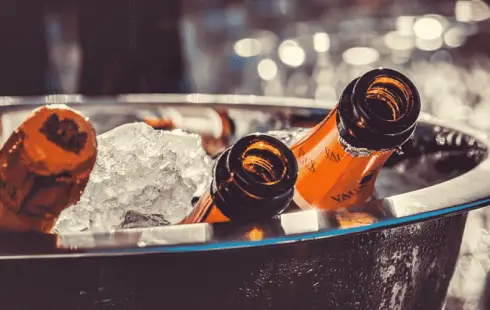
Crypto Investment Entry and Exit Strategies of Institutional Investors
Section: Business
 Already in the past year, the city of Offenbach has received repeated complaints from residents and passers-by because a group of people has regularly gathered on the area Geleitstraße, corner Herrnstraße, for sometimes noisy meetings. According to the city, alcohol has also been drunk during the day, combined with noise, pollution and public defecation on nearby green areas. According to the information, these are workers of foreign origin, who have no knowledge of German. The Erich-Kästner and Eichendorff schools are located in the immediate vicinity.
Already in the past year, the city of Offenbach has received repeated complaints from residents and passers-by because a group of people has regularly gathered on the area Geleitstraße, corner Herrnstraße, for sometimes noisy meetings. According to the city, alcohol has also been drunk during the day, combined with noise, pollution and public defecation on nearby green areas. According to the information, these are workers of foreign origin, who have no knowledge of German. The Erich-Kästner and Eichendorff schools are located in the immediate vicinity.
Apart from increased patrols by the city police and attempts by the neighborhood management to point out possible misconduct to the group, the city has systematically collected facts and assessments from residents in order to create a legally sound decision-making basis for a possible alcohol ban in an emergency, as head of public order Paul-Gerhard Weiß (FDP) has now explained.
Preventive ban not possible
Apart from the intervention of the neighborhood management and the intensified controls of the city police, the results of a survey among the population in the directly affected part of the neighborhood were also documented. These show that inappropriate alcohol consumption during the day in the immediate vicinity of schools is a particular cause for concern. Disturbances of the peace in the evening and at night also cause annoyance. The documented disturbances also exceed the tolerable level in his opinion, Weiß continued. However, the legal framework for an alcohol ban is very narrow. It must be clearly recognizable that alcohol consumption is the cause of the accumulation of disturbances.
According to the city, the effects on residents of adjacent buildings also play an important role in the legal evaluation. In the end, the documented condition must sufficiently justify such an encroachment on fundamental rights. Because in principle everyone has the right to sit down in the public area with others, in order to converse and drink something together. For this reason, an alcohol ban can only be imposed if the disturbances repeatedly occur in a serious manner. The ban must also be limited in time. According to the city, a ban may not be issued preventively.
"If the disturbances occur again in an unacceptable manner, the alcohol ban will be imposed. This procedure has been coordinated between head of public order Weiß and myself," said Mayor Felix Schwenke (SPD). For the time being the city sets however still on measures below the prohibition, if first positive effects stabilize, which produced discussions of the district management, the intensified city police controls as well as the signs with pictograms and the threatening fines set up there. In concrete terms, anyone who leaves cigarette butts, food leftovers, bottles or chewing gum on squares now already risks costs of between 50 and 250 euros. Urinating and dog excrement are punished with 100 to 250 euros.
Last year, the situation had worsened in the summer. The city now sees itself well equipped with the documentation to quickly issue an alcohol ban by general decree in an emergency.
Image by Couleur

Section: Business

Section: Arts

Section: Arts

Section: Business

Section: Business

Section: Arts

Section: Health

Section: Arts

Section: News

Section: News
Health Insurance in Germany is compulsory and sometimes complicated, not to mention expensive. As an expat, you are required to navigate this landscape within weeks of arriving, so check our FAQ on PKV. For our guide on resources and access to agents who can give you a competitive quote, try our PKV Cost comparison tool.
Germany is famous for its medical expertise and extensive number of hospitals and clinics. See this comprehensive directory of hospitals and clinics across the country, complete with links to their websites, addresses, contact info, and specializations/services.
Join us for the 10th Summer Concert at the Heilig Geist Church, featuring the captivating sounds of two trumpets accompanied by a majestic organ. This concert will showcase works by renowned composers including J.S. Bach, A. Torelli, P. Franceschini, H. Purcell, and others.



No comments yet. Be the first to comment!